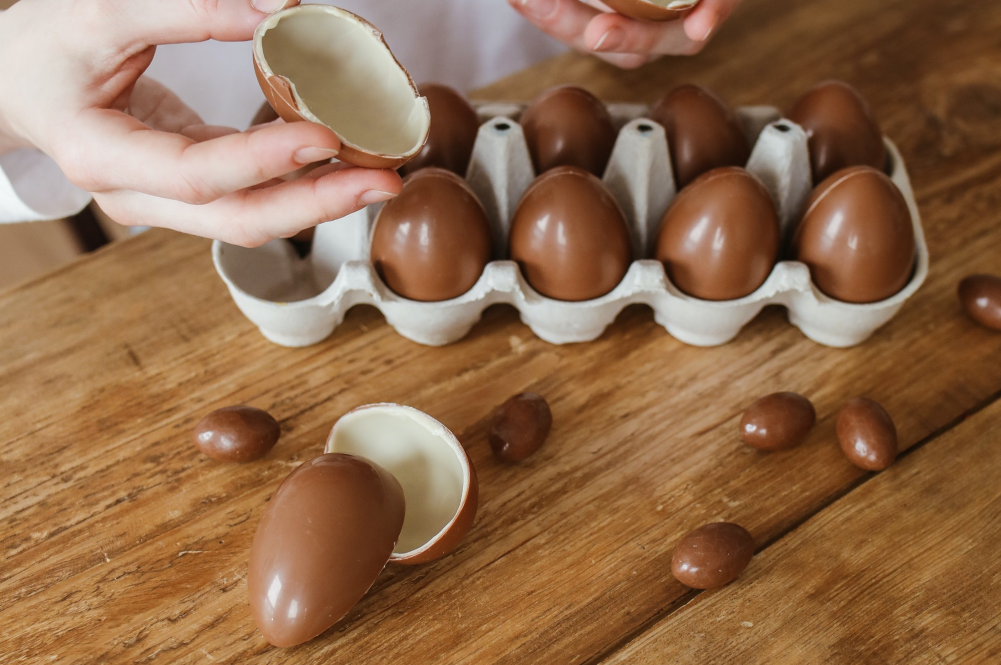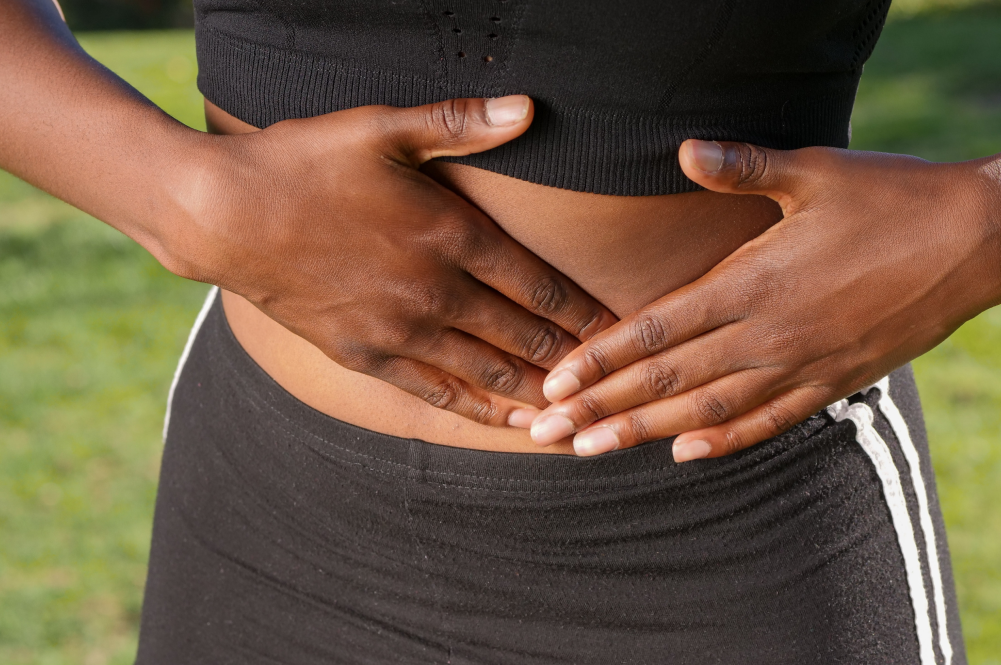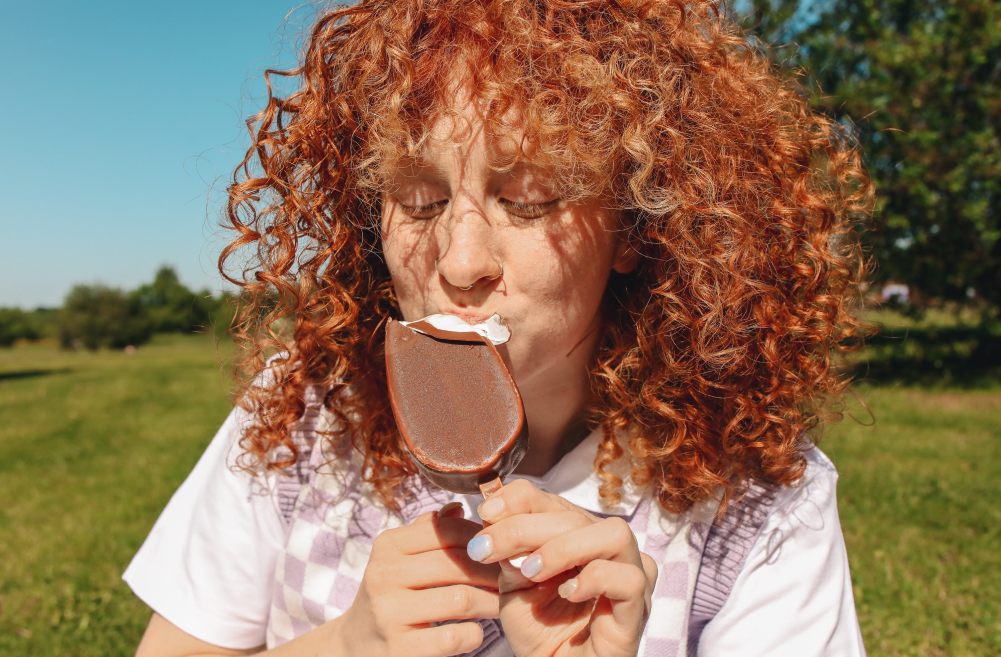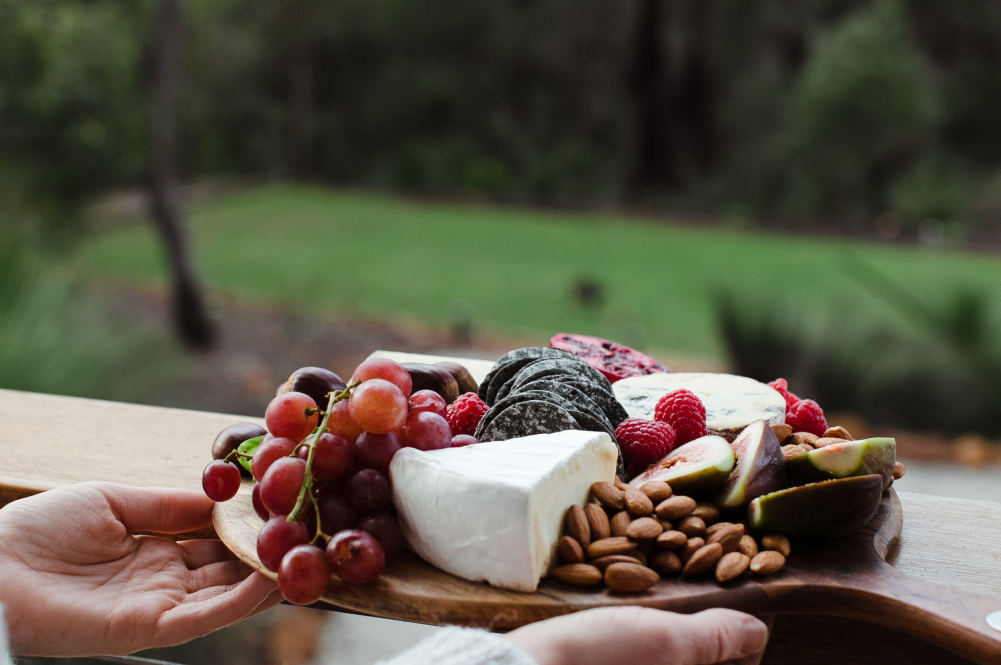There's nothing better than having chocolate, or better yet, sharing it with someone. That's why it's been the food of love for centuries and back, whether it's you giving your lover heart-shaped chocolate bars on Valentine's Day or surprising your grandma on her birthday.
 We know that the divine flavors and mouth-watering texture that comes with chocolate can be impossible to resist. However, a lot of people online are complaining about the gastrointestinal issues that come with this sweet treat, and we’re here to explain why, and how, that is.
We know that the divine flavors and mouth-watering texture that comes with chocolate can be impossible to resist. However, a lot of people online are complaining about the gastrointestinal issues that come with this sweet treat, and we’re here to explain why, and how, that is.
Though, shortly putting, chocolate hardly ever gets you constipated, and it’s usually other foods that you take with chocolate, like dairy, that can cause constipation.
In addition to that, if you have underlying conditions in your digestive system, like Irritable Bowel Syndrome (IBS), eating chocolate can cause a flare, which can lead to constipation.
Does that sound something similar to what you're going through? In this blog post, we'll delve into why this might happen and answer the question: can chocolate cause constipation?
Plus, we'll also help you learn some helpful tips on how you can enjoy your favorite treats without ending up feeling uncomfortable or sluggish afterward!
Table of Contents
Constipation - What Is It?

We've all been there - that feeling of discomfort and irregularity that seems to strike at the worst possible time. That's right, we're talking about constipation.
So, what is constipation?
In a nutshell, it's a condition where you have difficulty passing stools. Often, those stools are hard and dry, making the whole process even more unpleasant.
As bad as it seems, there are a lot of factors at play when we talk about constipation, which can range from your overall gut health, your dietary choices, the kind of lifestyle you're living, and so forth and so forth.
Even the kind of medication you're on can bring problems like bloating and constipation to the body, which is often why it's difficult to find the underlying cause behind it.
Causes and Symptoms Of Constipation
As we mentioned before, there are a lot of causes behind constipation, and we'll explore a few down below.
However, let’s first talk about the various symptoms that constipation brings, and how you can identify the severity of your constipation before trying to treat it yourself.
Some of the most common symptoms of constipation include, but are not limited to:
-
fewer than three bowel movements a week.
-
Hard, dry, or lumpy stools
-
Stools that feel difficult to pass
-
Not feeling like you’ve fully gone after frequent bathroom visits
These are just what most constipation patients feel like. If it’s getting worse and worse by the day, the following symptoms can also show, which might mean a visit to the doctor:
-
Severe abdominal pain
-
Loss of appetite
-
Blood in stools
-
Intense nausea
-
Chest and back pain
Following are some of the most common causes behind constipation:
Low Water Intake
Did you know that not drinking enough water can lead to constipation? It's true! When our bodies become dehydrated, our colon (aka large intestine) tries to absorb more water from the stool to compensate.
This can result in dry and hard stool that is difficult to pass, causing constipation. Staying hydrated is one of the simplest and most effective ways to prevent constipation.
Make sure to drink more than 8 glasses of water a day, and constantly remind yourself to get yourself a refreshing glass of water to stay on top of your constipation problems!
Bad Dietary Choices
It's no secret that what we eat affects our bodies in a myriad of ways. While indulging in sweets and junk food may seem like a harmless treat, it can wreak havoc on our digestive system in the form of constipation.
A bad diet characterized by a lack of fiber, fruits, and vegetables can make it difficult for our bodies to pass stool. Additionally, dehydration caused by alcohol and sugary drinks only adds fuel to the fire, worsening the problem.
So next time you decide to indulge in a less-than-healthy meal, remember the impact it may have on your gut. It's important to make conscious efforts towards a balanced diet to keep our bodies functioning properly.
Low Fiber Diet
Constipation is a commonly experienced ailment as we've mentioned countless times on our blog, and one of its main causes is a low-fiber diet. Let us explain why.
When you consume a low-fiber diet, such as a high intake of processed foods and meat, it can be very difficult for your digestive system to pass through the food. This lack of fiber causes waste to move very slowly through the digestive system, creating hard and dry stools that can become very difficult to expel.
Yikes! So, if you're ever feeling blocked up, consider adding more fiber to your diet to help move things along.
Chocolate and Constipation - How Are The Two Connected?

As far as scientific research goes, there's not a lot of connection between having your favorite dark chocolate, or any other chocolate-filled foods, and constipation, so why are there so many people complaining that their chronic constipation is being aggravated by chocolate?
Well, as we mentioned earlier in the article, it's not the chocolate or the cocoa that causes your constipation, but the foods you intake it with. You might be tempted to get some hot milk or any other dairy product with your favorite chocolate bar, and since a lot of people have lactose intolerance, it can bring ailments like constipation, gas, and bloating.
However, if you’re someone that has Irritable Bowel Syndrome, eating chocolate should be out of bounds for you. This is because chocolate’s main ingredient, cocoa, is researched to cause IBS flare-ups in people, which can bring problems like constipation.
How Much Chocolate Should You Eat Without Getting Constipated
While chocolate does contain compounds that can slow down digestion, you'd have to eat a significant amount for it to cause constipation. There's no official recommended daily limit on chocolate consumption.
However, it's important to keep in mind that chocolate is high in calories and sugar, so it's best to enjoy it in moderation.
As a general rule of thumb, aim for a few small pieces of dark chocolate per day to satisfy your sweet tooth without upsetting your digestive system.
If you're eating too much chocolate daily, you'll have a slowed digestion process, and we all know what happens when that happens. Hint: it's constipation!
Best Foods To Get Your Bowel Movements

While chocolate has also been studied to increase bowel movements in some cases, we don't recommend relying on that to set your constipation straight.
In truth, there are a lot of alternatives to get the ball rolling for you, and if you haven't been keeping up with our daily blogs, here are a few foods and supplements to get you started on a journey to a healthy digestive system!
Probiotic Supplements
Probiotics are gaining more and more recognition as scientific research continues to prove their effectiveness in the gut, and we're all for it, as our IBSupport supplements are loved by people who are riddled with gut problems like IBS, IBD, constipation, and more.
In a nutshell, probiotic supplements can work wonders for your gut health, and consequently, reduce constipation. Probiotics are beneficial bacteria that live in your gut and help regulate digestion.
When your gut isn't balanced, the bad bacteria can take over and cause constipation among other issues. Taking a probiotic supplement can help restore that balance, allowing your digestive system to function properly.
Cranberry Juice
Although cranberry juice is typically associated with preventing UTIs, it also contains natural compounds that can help alleviate constipation.
The juice's high levels of antioxidants and fiber work together to promote bowel regularity and ease digestive issues. So next time you're feeling backed up, skip the laxatives and reach for a glass of tart and tangy cranberry juice instead. Your gut (and taste buds) will thank you.
Prune Juice
Despite many people associating it with their grandparents, this refreshing beverage has been used for generations to combat and cure constipation.
The reason why prune juice is so effective is because prunes are categorized under high-fiber foods, and have a lot of sorbitol content. Sorbitol, a natural sugar alcohol found in prunes, helps to ease stool movement through your digestive system and expel them without any trouble.
As a result, drinking prune juice can give you much-needed relief in a gentle way that's as tasty as it is beneficial. So the next time you're experiencing constipation, try a glass of prune juice and feel the relief!
Orange Juice
If you're feeling a bit backed up, you might want to consider adding a glass (or two!) of orange juice to your morning routine. It turns out that oranges have long been known for their digestive benefits, and orange juice is no exception.
The juice works as a natural solution to constipation because of its high levels of fiber and vitamin C. The fiber helps to regulate bowel movements, while the vitamin C acts as a natural laxative by increasing stomach acid production and stimulating the intestines.
Drinking orange juice can not only help you relieve constipation, but it's also a tasty way to start your day. So, next time you're feeling a bit sluggish, reach for some OJ and feel the relief.
Bottom Line
There are a lot of reasons for your constipation and gut health issues, but there's a very little chance that your temptations to eat chocolate are among them (as long as you're eating in moderation). We've discussed, in detail, the various things that might be triggering your constipation, and even more ways you can counter them.
Make sure to keep up with our weekly blogs to battle gut health issues like these, and sign up for our newsletter to not only get 10% off on all products but read insightful guides about gut health issues you might be riddled with!

